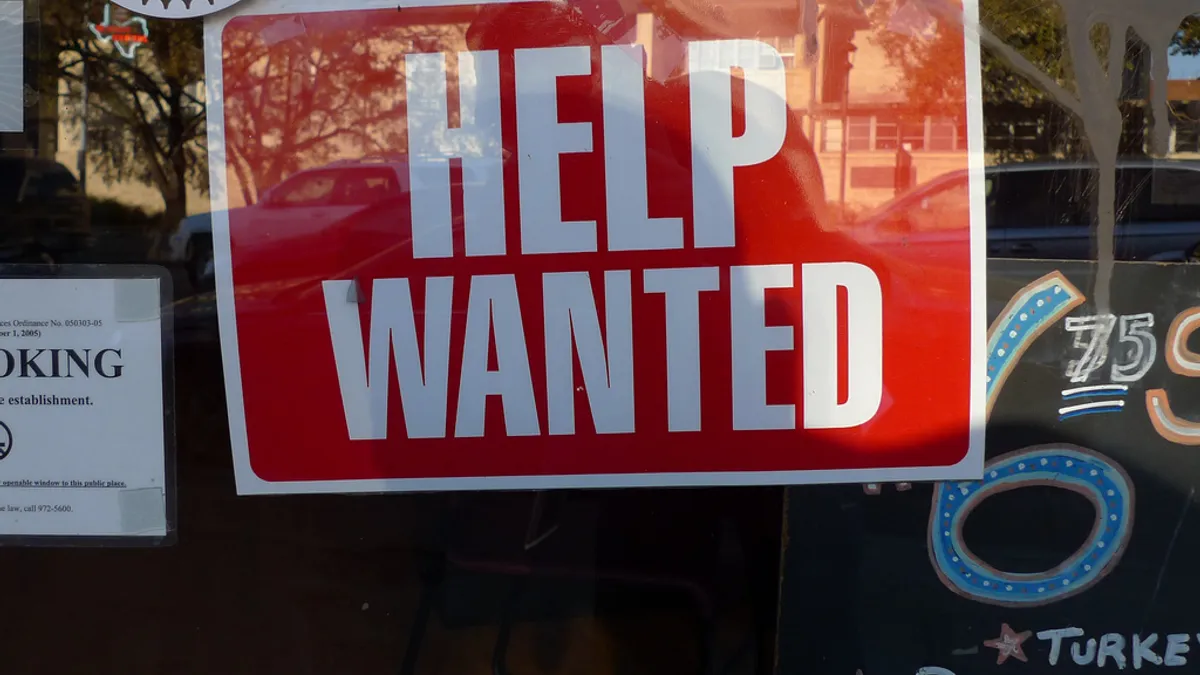Editor's note: Welcome to Resource Actions, our occasional, back-and-forth column covering everything from the bizarre to the day-to-day that, despite everything, impacts HR departments. Please feel free to send all tips, thoughts and maple donuts to [email protected] and [email protected].
Ryan Golden: We’re back with a light-hearted Friday morning post for you, HR Dive readers. This one is a treat.
Kathryn Moody: To the recruiters out there: We know it’s a tough world for y’all, especially at a time when skilled talent has probably never been harder to find, and when job hopping and short-time gigs are more mainstream than ever.
Ryan Golden: All that considered, we were only *somewhat* surprised to see this very, very honest job ad for a photo editor at Manhattan-based Time Out New York. Please, just, take a few minutes to read the whole thing — our words really can’t do it justice.
Um. @TimeOutNewYork has a very informative job posting for a photo editor. Cc: @_msinclair https://t.co/MGFK8938kw pic.twitter.com/Xoq4yLiI0W
— Brandy Zadrozny (@BrandyZadrozny) September 29, 2017
Kathryn Moody: The talent shortage is really getting to people, huh?
Ryan Golden: A write-up from Digg says the “Full Rationale” section (accurately named, by the way) was accidentally thrown into the full post on Indeed.
Hey, we've all been there.
Kathryn Moody: What gets me here is that this is a pretty good example of how transparency can be a really bad thing for an organization that doesn’t handle it well.
Melissa is rightly stressed. But yes, let’s add a single other person in "NYC" who will be paid at $40,000-$45,000 — yes, in New York City — to also deal with 22 other magazines in other cities!
Ryan Golden: You can ask lower-wage workers in other large cities like Silicon Valley how well that’s going to work out. Two things come to mind for me here, looking at the situation for poor Melissa and her co-workers (including Joel and Tom, who appear to be incredibly supportive).
One is Time Out’s struggle with freelance/contingent work, an increasingly common problem for firms in the age of the gig economy. The other is sheer burnout. I mean, I know some organizations are desperate for help, but yeesh.
Kathryn Moody: On the other hand, the real parameters of the job should likely come out during the interview process, at the very least. A truly successful recruiting campaign should rely on the authentic experience of working for the company and maintain strong communication throughout the hiring process.
This ad? Obviously a silly error on someone’s part. But if Time Out had, say, done the opposite and not been upfront about what a new hire would be walking into, that could have backfired on them, too.
Ryan Golden: Sure, but you can’t ignore the real, actual effects of burnout in the workplace. It is a real phenomenon that impacts high-performers of all types and backgrounds and is a legitimate health issue worthy of investment. Paying close attention to the well-being of your employees goes a long way in keeping them around and keeping them healthy.
There are also some more appropriate ways of conveying the high demands of a given job. Above all, employers should avoid prejudicial language that runs contrary to applicable laws and clearly outline what the essential functions of the job are.
Kathryn Moody: It’s too late for Time Out to put the cat back in the bag now. But when hunting for a person who would actually gravitate toward a more challenging position, you can’t hide the bag and hope for the best. A negative to one person may not be a negative to another. You can only find that magical candidate with the right amount of transparency.
Ryan Golden: In the meantime, Godspeed, Melissa. Our best wishes to you and all recruiters on landing the perfect candidate.
















